As we continue with my series on Irish horse producers and businesses, I had a chat with Emily Fletcher, who run Virtuoso Sports Horses. Emily has some incredible young stock to her name and has a worldwide clientele because of her ability to match mares to the right stallion to produce some great horses. Here, we talk about how the cost-of-living crisis has impacted on Irish breeders and producers and if the Irish horse is still holding its own in the current market.
Firstly – tell us who you are and a little bit about what you do:
My name is Emily Fletcher, and I have been around horses for over 30 years. I primarily breed sport horses and help match national and international clients with horses. I am based in a beautiful part of Ireland at the base of the Comeragh Mountains where my small herd live out with access to a barn, yard and track plus paddocks and fields. We are in a super position in that we are 2hours or less from every major airport in Ireland.
I have 3 main broodmares at the moment and some young stock. The horses run alongside my full-time job and three small boys so I’m busy!
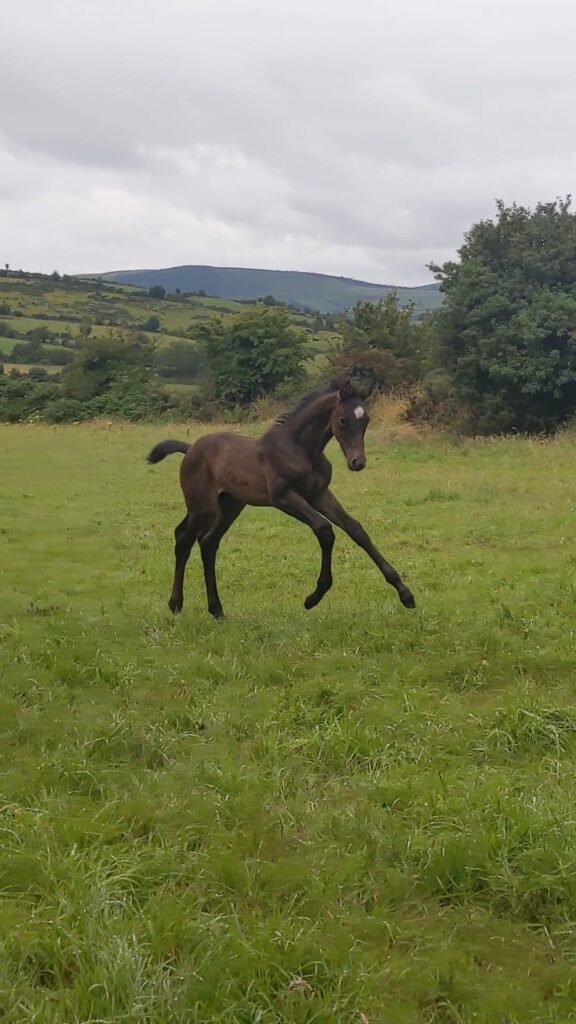
From primarily researching this series of articles and chatting to different individuals in the equine sector, it seems that horses – just like so many other industries in Ireland are taking a financial hit, money is not as freely available and the cost of living increase seems to be having a detrimental effect – what are your thoughts or insight into this?
I must say so far I have been lucky not to notice this as much with regard to people buying horses. Good horses and good stock always seem to hold their prices. It is rare that you will pick up a bargain for a decent horse.
Something I hear a lot of people talk about is the ever rising cost of living in the equine industry. As a breeder and producer of horses, are you noticing this? I would imagine with the number of horses you breed and helping clients sell and buy sport horses you have noticed this?
Yes definitely. I keep spreadsheets for all my horses and costs have risen from 30-60% in the last few years. It’s a lot!!
For example, a few years ago feed used to be 10-12€ a bag and hay 25-30€ a round bale. Now you’re talking 18-22€ a bag of feed and 40-60€ per round bale.
Have you seen a change in potential buyers? Is the interest and opportunity still around to buy horses? Do you find that the Irish market is holding its own against the UK and foreign markets? Is the interest in Irish horses still external – are there as many going overseas still?
Yes, the Irish market is still holding its own internationally. Rather oddly COVID opened up a few more markets. People were buying from videos and live stream and these people have been repeat customers since. I would say our buyers are mainly (60-75%) from the UK and USA. These clients find more value here. We often get clients from Germany, Denmark, Netherlands, Sweden and the middle East.
However, most importantly the Irish horse and the way they’re raised is an integral part of this. The grass, the knowledge and level of horsemanship; and, the actual countryside itself where the horses grow up I believe cannot be matched anywhere in the world. The clients also agree as many require young stock livery and breaking before importing age 4 or 5.
Would you say that the price and value on horses has changed in recent times?
As I mentioned previously a good horse will always hold its value. A lot of people do not realise that the cost of getting a nice foal on the ground if you’re doing everything right tends to be 3-5k€ if the mare goes in first time. Without the stud fee!! On average it costs 1.5-3k€ per year to keep a young horse (contract rearing tends to run around 2.5k€pa at the moment). You can see already by the time the horse is four you’re in the five figure region.
Before early 2020 the average or below average foals-3 year olds were being sold well under what it would cost to breed and raise them. This was terrible for breeders and points to the importance of having good breeding stock that have a purpose – be they general riding horses, show horses, leisure horses or sport horses. Then COVID hit and prices skyrocketed. Your poor and average horses were overpriced; people were asking four times the price of what they usually got, and what the horse was worth….and they were getting it. This particular bubble had to burst eventual and I believe it has. Prices are falling but I don’t think they have or will hit the absolute lows they used to be.
For older horses again the poor and below average horse prices during skyrocketed during the COVID years, these prices have also fallen and leveled out a bit. There is value there, it can be hard to find though as everyone is looking for it.
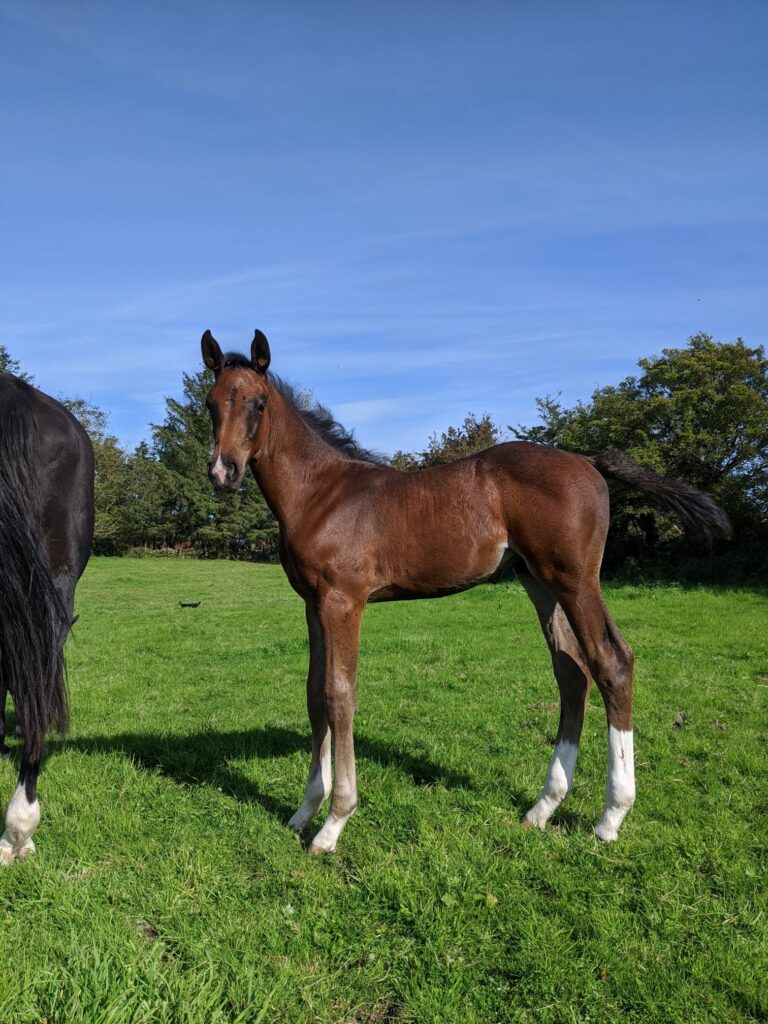
How is the cost of living increase affecting you – if at all? Do you find yourself forced to pass incurred costs to your clients and if so – do you feel it is a risk to your business?
It’s tough. I’m not going to lie. My average costs have gone up approximately 50%.
I never thought I would achieve my dream of owning a few acres and being able to have my own horses. I am still building and slowly improving on what used to be an old dairy farm. We only have a few acres and as it’s more of a hobby (passion/obsession) ran alongside my full time job, for instance we don’t have any machinery on site bar an old dumper that you have to crank start. This means if I want fields rolled/harrowed/muck spread/haymade I have to pay contractors. They have had to increase their prices mainly due to the price of fuel and their own cost of living going up.
I have a very bespoke breeding program and like to involve future and current clients as much as I can but as for passing on these costs it’s hard to raise prices by the 50% that I have seen costs rise in the last two years.
However I will need to make adjustments next year as even the cost of registering foals is now approximately 250€ to include the vet fee. Before I used to absorb this and the transfer of ownership fee but I may have to pass this one on to help.
I don’t think it will be a major risk to the business as I try very hard to keep quality stock, breeding in mind for a purpose and improving every generation as best I can. I breed for trainability, rideability and purpose. If I was not being careful breeding and breeding from poorer stock or just to go with market trends then yes it might be an issue.
Has the type of horse that your clientele are looking for changed at all?
The type of horse hasn’t changed but being able to get them for clients has become increasingly harder. The majority of people and the biggest market are the amateur type riders they want a 6-8 year old sport horse to jump 90-120cm, has to be quiet, trainable and rideable, clean vet and good x-rays. A lot of horses are being sold as youngsters overseas and not being produced here in the numbers they were. The people that do have these types tend to keep them as they’re their own horses rather than producers.
Also the Traditional Irish Horses (TIH) are not being bred in the numbers they were. Even half traditional can be hard to find. People were paying more for warmblood and foreign blood and a lot of breeders followed the market. This has led to a lack of the traditional horses which tend to suit the above mentioned market. People also tend to think they can pick up this amateur type horse for 5k€ whereas in reality you’re talking 15-25k€.
Do you have concerns for the industry going forward unless things improve?
I think less people are going to be able to stay breeding with such a high costs. It is very hard for the smaller breeder and producer. It’s very much a numbers game. And if ‘the math doesn’t math’ as they say you’re going to find people having to decrease their numbers or give up altogether. This in conjunction with bigger names low balling smaller breeders does not help and will diminish the market eventually.
Producers on a small scale will also notice the costs are now mounting and the problem of finding decent 3 year olds is huge. I have noticed a big trend towards people buying foals and 2 year olds now as the 3 year olds are either not there or too expensive.
What are your thoughts on how people who bought horses they wanted bringing on, by people like yourself, who now find themselves financially unable to do so? Would you have any advice on what they should do to bring the horse to its full potential at an appropriate age?
It all depends on the person. If they have bought a horse, they would hope may reach top competition level and cannot afford for it to be produced then the only real option is to sell or find a partner. The partnership route opens up many opportunities but also a myriad of potential problems. Contracts need to be watertight and beneficial to all parties. Even if you’re friends, a contract should be put in place.
If they have bought a horse that they want backed and produced before taking over the reins themselves they may need to look at bringing the horse home earlier in the producing process and instead of paying training livery pay for lessons and the occasional two-week block of training livery with a professional. If the horse is very blood and slightly too much for the rider at a younger age again maybe selling and buying a more rideable type would be the best option. Not every horse fits a rider. It is a partnership and you can’t force it to work.
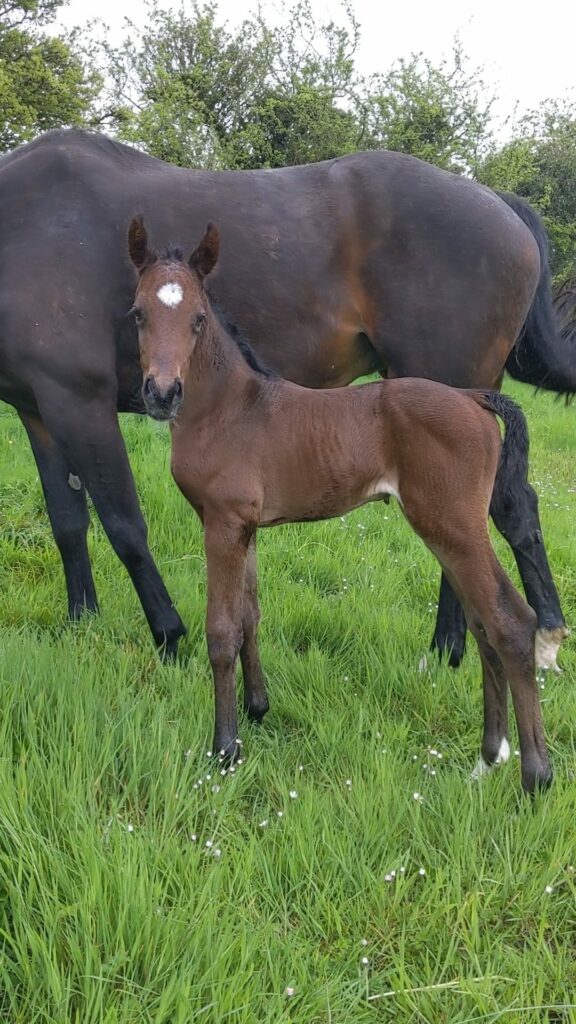
How do you feel Ireland compares to the rest of Europe and the UK for people like yourself – in terms of opportunities and facilities/competitions for the horses?
I think we have a better reputation for horses and as I said the upbringing and raising of the youngsters is second to none here. So for breeders and producers the things money cannot buy (knowledge, that feel, the land quality) are here and the world knows it. In terms of support (grants and financial) for us to keep going it is being improved but at a much slower rate than I would like. There are many people doing great things for ensuring that young horses can be produced more slowly (e.g. The five stars tour by Oonagh Kennedy; Young event horse series) and more sales for foals like that run by the Mayo Roscommon Breeders Association. These need to be supported and nurtured, and, not come second place to other events. They are vitally important in the correct production of young horses, especially those developing at a slower pace be it due to height, or those who have had a foal.
Is there anything that bodies like Horse Sport Ireland/Show Jumping Ireland or even the Government could be doing to help the equestrians of Ireland in your opinion?
Yes! There has been a lot of work behind the scenes by a great group of breeders and producers that have helped get more grants for people involved in the equine industry in the last couple of years. This is great. The small breeder and producer is still being overlooked by some of these schemes as you need a certain acreage say to access them. I cannot get a grant to help towards improving my facilities or putting in all weather areas, walker or help with fencing and improve natural hedgerows because I only have three acres.
A lot of horse owners especially breeders only have one or two horses and a few acres. I don’t have the figures but I’m sure we account for a very large percentage of people breeding and raising young stock in Ireland. It would be nice to be able to be included. To be able to improve on what we have. To be appreciated for our small part in the revenue brought in to Ireland on the Equine sector. To enable us to continue with and explore new methods.
Finally – if you could change one thing in the Irish Equine Industry – what would it be – and why?
I wish that everyone would realise that the industry is so large and varied that not only is there enough room for everyone at the table but there is enough pie for everyone to have a piece. I would like if there was more support and sense of community rather than trying to drag people down.
The industry needs to be more inclusive and celebrate diversity.
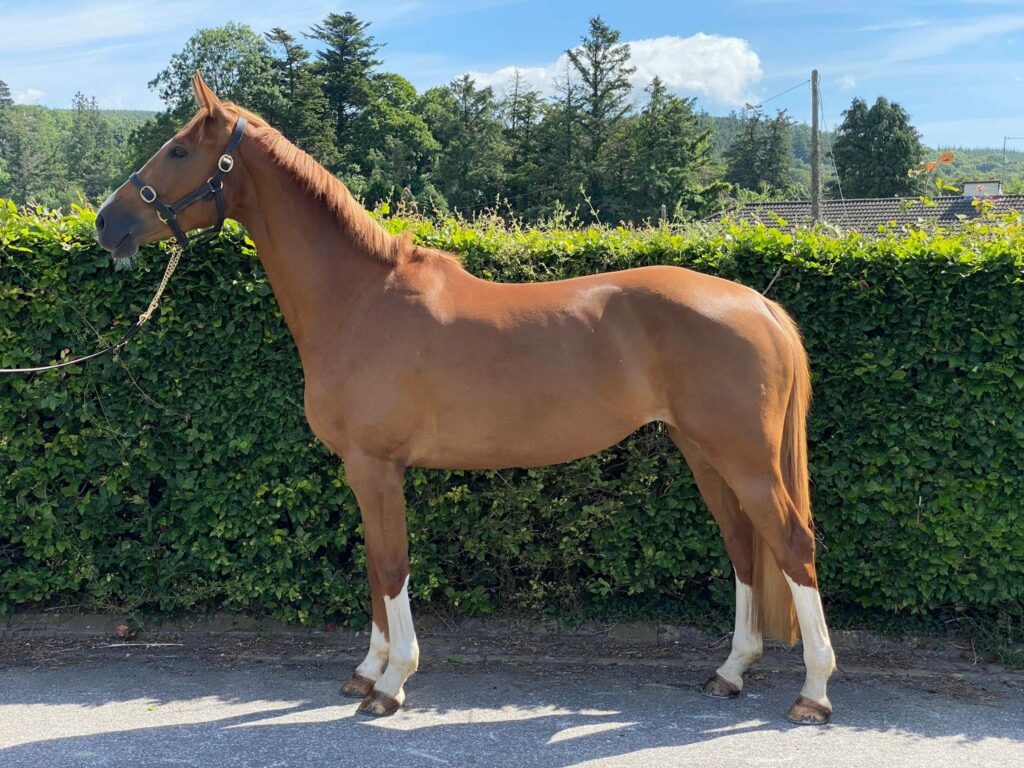
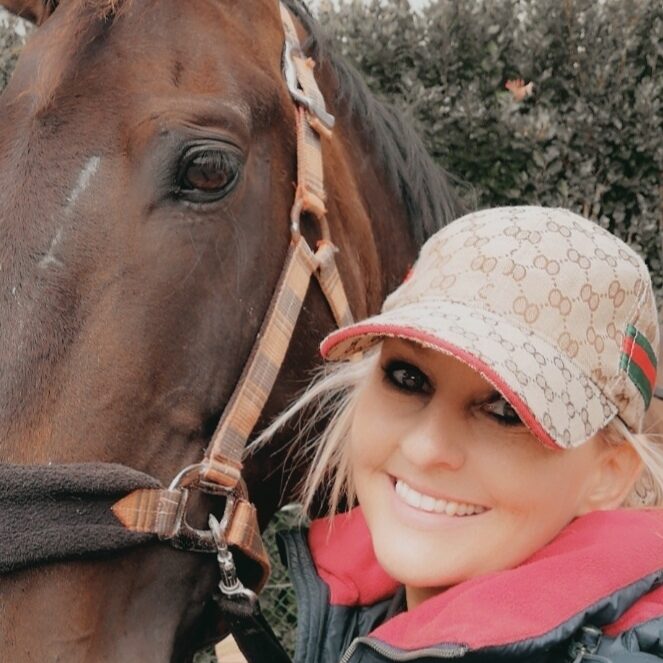

Share
Your subscription is 100% Free for our first year, No credit card details required.
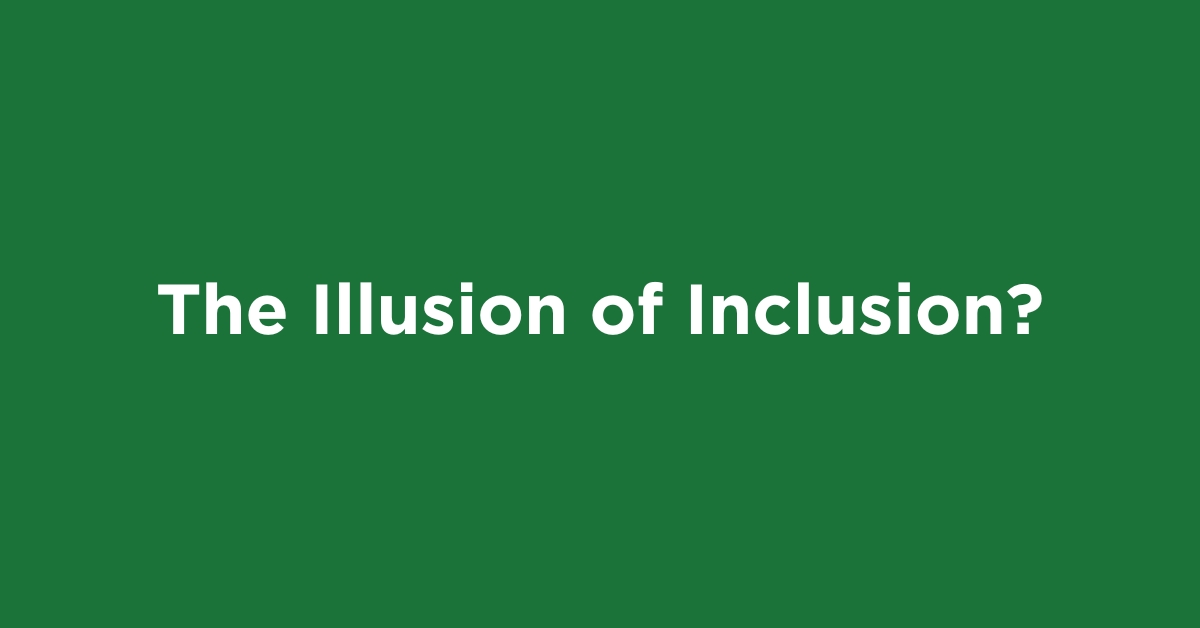
In the wake of recent restructuring within Horse Sport Ireland (HSI), a multitude of concerns have arisen surrounding the new
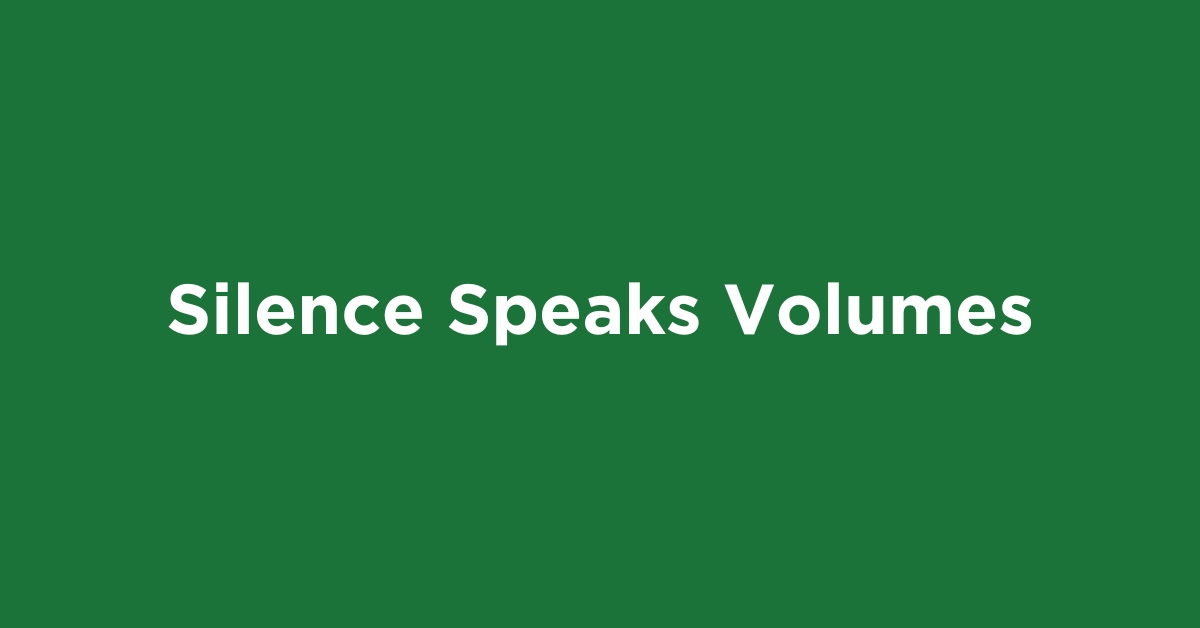
In the wake of Horse Sport Ireland’s (HSI) recent governance changes, questions and concerns have bubbled up from the grassroots
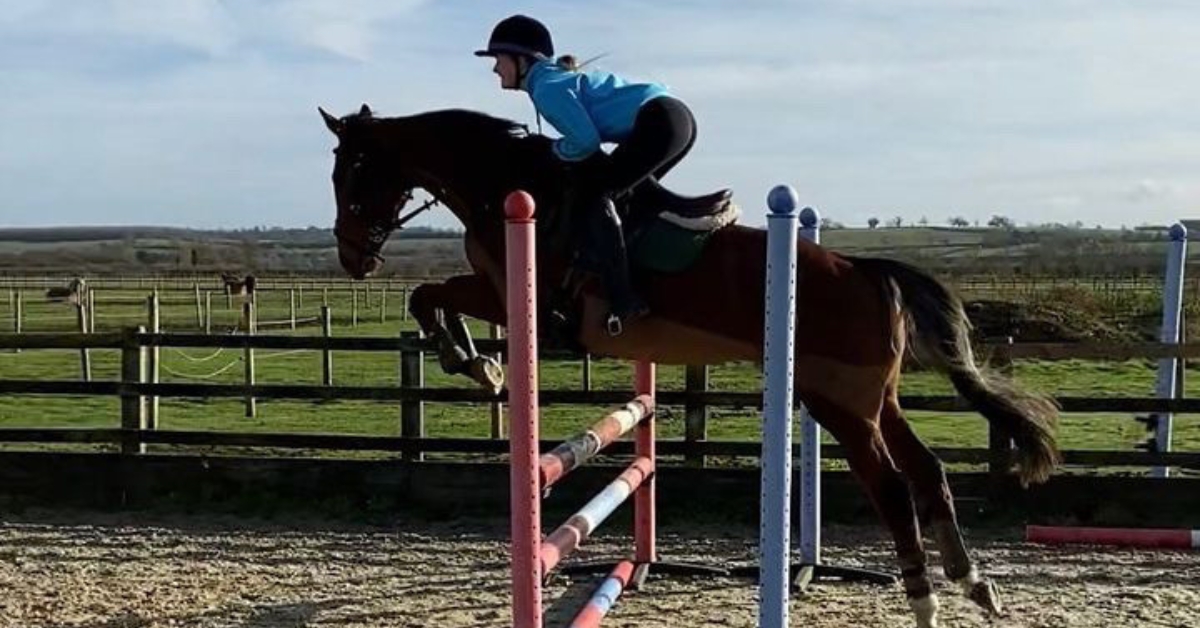
Molly Perkins: Triumph Over Adversity and Inspiring a New Generation At just 21 years old, Molly Perkins is not just